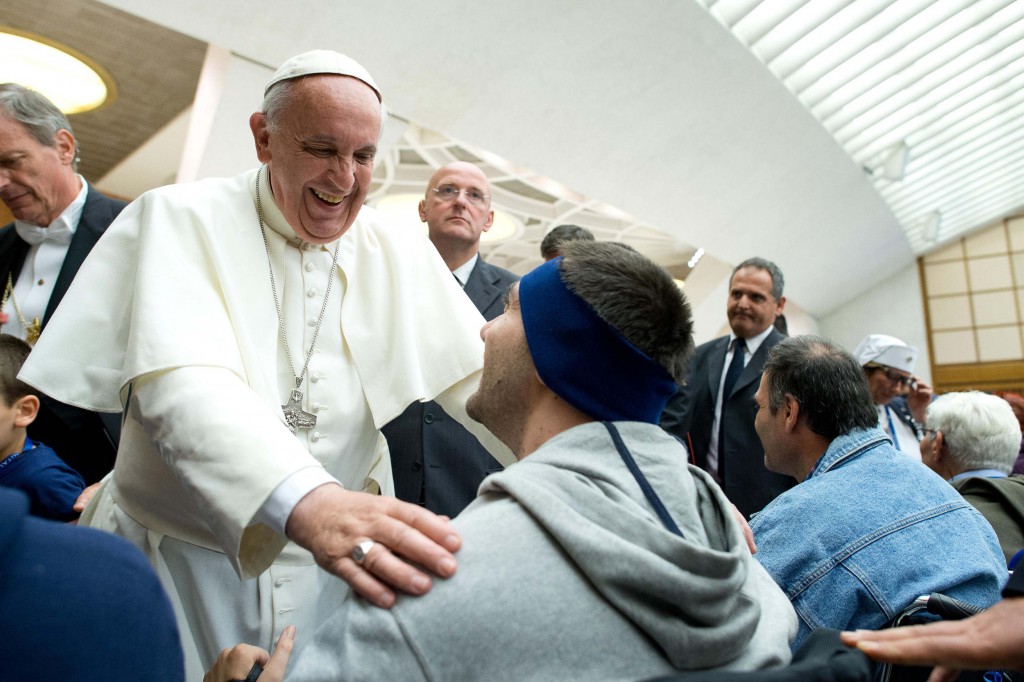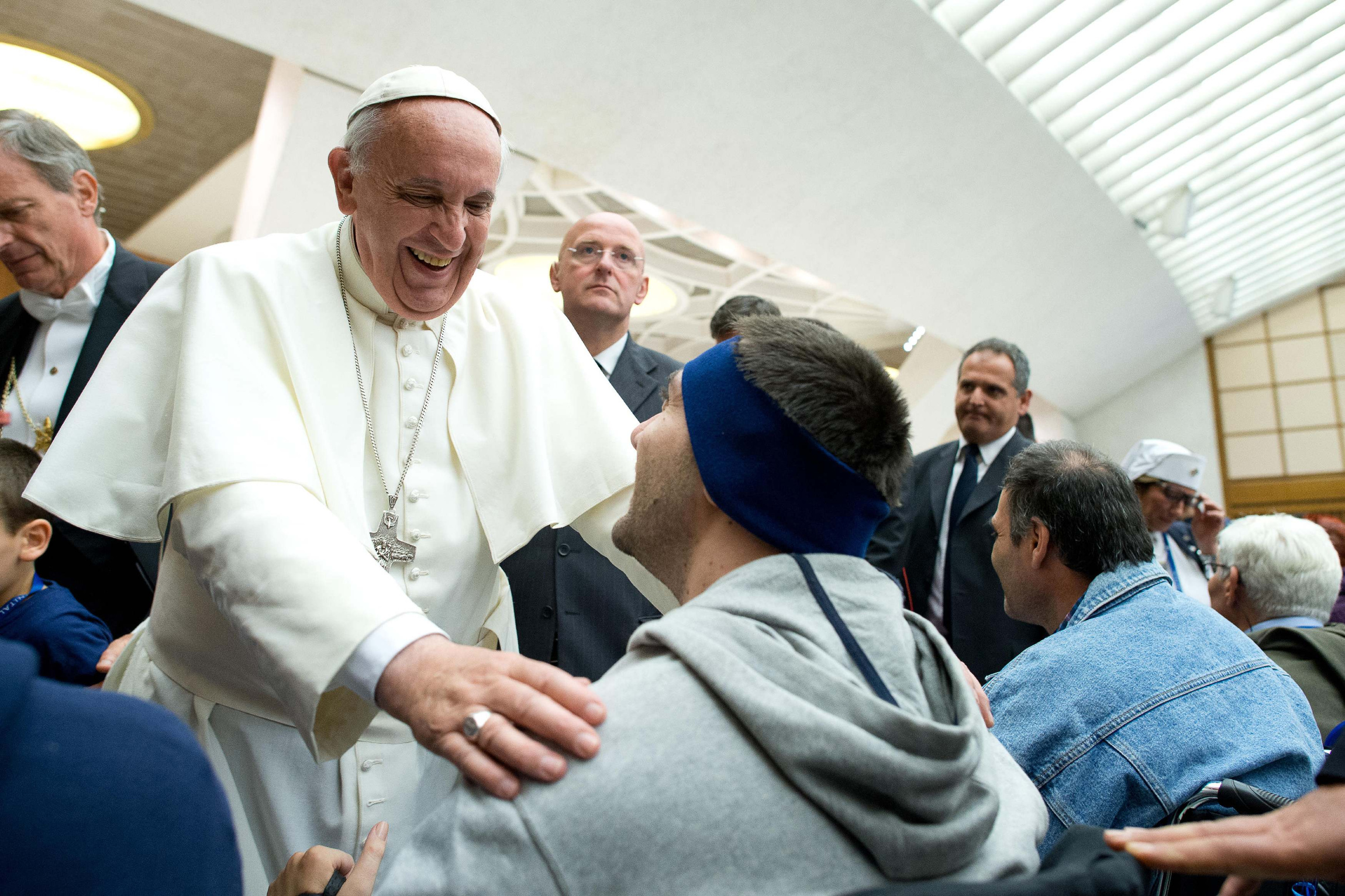
VATICAN CITY (CNS) — God loves and forgives sinners but abhors and condemns “putrid” hypocrites who lead others to sin, Pope Francis said.
The pope spoke Nov. 11 during a morning Mass he celebrated in the Vatican guesthouse, where he lives.
“We should all call ourselves sinners, yes, all of us,” he said, but “not corrupt people. The corrupt man is stuck in a state of self-importance, he doesn’t know what humility is,” Pope Francis said, according to a report by Vatican Radio.
“Jesus spoke to these corrupt men of the ‘beauty of being whitewashed tombs’ (Mt 23: 27), which appear beautiful on the outside but inside are full of dead bones and putrefaction,” the pope said.
“We all know someone in this situation, and how much harm they do to the church,” he said. “Corrupt Christians, corrupt priests. How much harm they do to the church, because they don’t live in the spirit of the Gospel, but in the spirit of worldliness.”
The pope took as his text the day’s Gospel reading (Lk 17:1-6), in which Jesus enjoins his disciples to forgive those who wrong them, but says of someone who leads others to sin, “it would be better for him if a millstone were put around his neck and he be thrown into the sea.”
Pope Francis posed the question of the difference between mere sin and scandal.
“The difference is that one who sins and repents, asks forgiveness, recognizes his weakness, feels like a child of God, humbles himself and asks Jesus for salvation,” he said.
“But what is scandalous about the other?” the pope asked. “That he doesn’t repent. He continues to sin but pretends to be Christian, (he leads) a double life.”
The pope then assumed the voice of such a person, whom he imagined protesting: “‘But I am a benefactor of the church. I put my hand in my pocket and give to the church.’
“But with the other hand, he robs, from the state, from the poor,” Pope Francis said. “He is an unjust man. This is a double life.
“And this merits — Jesus says so, not I — that they put a millstone around his neck and throw him into the sea,” the pope said. “(Jesus) doesn’t talk about forgiveness here.”
— By Francis X. Rocca, Catholic News Service






